Data Analyst at Sustainabuy, exploring the link between economics, energy, and sustainability. Abbas uses data to uncover sustainable solutions that help UK families save on energy bills and reduce CO₂ emissions. He explores global trends and local insights to guide you toward a greener, more efficient home.
ABBAS HASHIMOV
Author

As households bear to witness energy prices stabilise at levels far above the pre-2022 average, households have been forced to explore methods that can permanently reduce their energy use; not just temporarily adjust their habits. This report offers a data-backed, science informed breakdown of how UK households can reduce household energy consumption, with actionable solutions combined with real-world cost benefit analysis.
According to Ofgem’s latest price cap, a typical UK household will now pay around £1,700 per for dual-fuel energy.¹ Despite this being lower from the 2022 crisis peak, it is still 56% higher than 2019 averages. A burden made significantly worse by the fact that median wages have not kept pace with inflation, leaving families with reduced real-term income to cover essential costs.
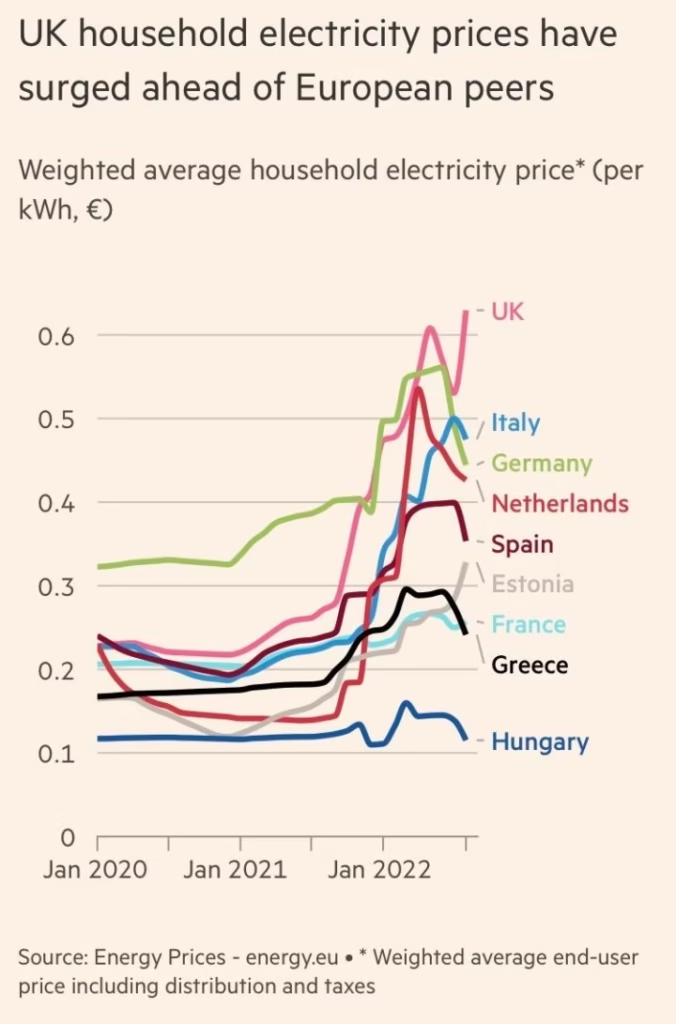
This chart from the Financial Times, illustrates the trend in weighted average energy prices in the UK from 2020 to late 2022. It captures the fluctuation of electricity cost between the two year period. Notably, prices peaked sharply in mid to late 2022, coinciding with the global energy crisis sparked by the Russian invasion of Ukraine and the subsequent market instability. By 2024, we know prices have now decreased but remained above pre-crisis levels, indicating a “new normal” in consumer energy costs.
SCIENCE-BASED STRATEGIES TO REDUCE ENERGY BILLS
1. Insulate walls, Roofs, and Floors: Thermal physics in action.
Heat transfer from your home occurs via conduction through a household’s building materials. The utilisation of insulation will slow this process by reducing the thermal conductivity (λ) of walls, floors, and ceilings.
λ (W/m·K) is a material’s ability to conduct heat. Lower values = better insulation.
Cost vs Annual Savings for UK Insulation Types:
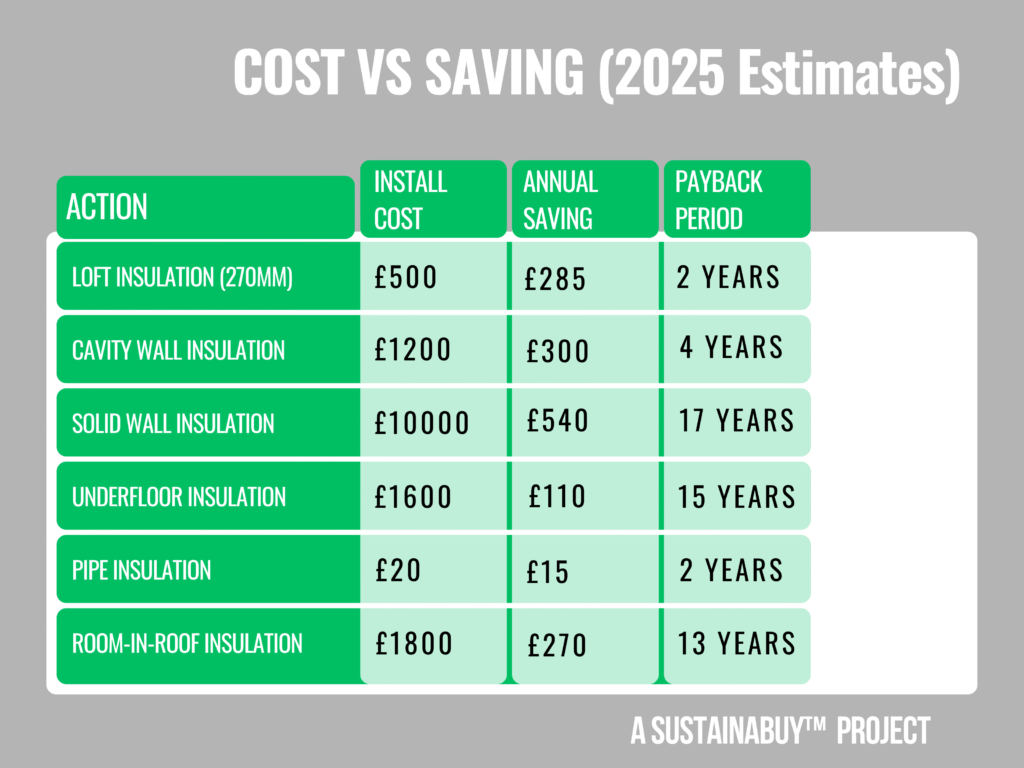
Sources: Energy Saving Trust, 2024³; BEIS Efficiency Statistics, 2023⁴
Note: Each 10 mm of mineral wool can reduce heat transfer by 10–15%, depending on placement. Over a heating season, this equals hundreds of kWh saved.
2. switch to led': cut your electrical load and heat waste.
On average, in UK households, lighting accounts for 11% of home electricity consumption. Traditional and outdated bulbs convert 90-95% of energy into heat, not light. It can not be stressed to UK households enough that these permanent habits will have a permanent reduction on your energy bill. By contrast, LED’s operate at >100 lumens/W and waste less than 10% as heat. Below I will provide a cost comparison:
LED bulb: £3–£7 each
Annual savings per bulb: ~£10 (vs halogen)
Return on investment: ~2 months
3. Use Tapsmart™ 2.0 – Eliminate EXCESS Boiling and Bottled Water.
Undoubtedly a daily ritual in most UK kitchens, boiled water using a kettle represents a significant amount of your electricity bill and many of us still boil more water than needed. According to the UK Tea and Infusions Association (UKTIA), 80% of Brits overfill the kettle, wasting enough energy to power 112 homes per year. This unnecessary boiling adds approximately £109 annually to each household’s energy bill³.
Here is how the numbers stack up:
A standard 3 kW kettle uses about 45 seconds and 0.04 kWh to boil a single cup.
With UK electricity at 27 p/kWh, that’s 1.2p per cup, or £98–£110 per year assuming four cups daily⁴.
By using the Tapsmart 2.0 filter:
You get clean-tasting tap water instantly, removing chlorine, VOCs, and microplastics.
You’re more likely to boil only the water you actually need, aligning with the UK “Smart Boil” campaign advice.

While bottled water consumption remains common in UK households, it comes at a quiet financial cost. Averaging £3-£5 per week, families can spend over £200 annually on a resource that already flows directly from their tap. Device’s like Sustainabuy’s Tapsmart 2.0, which combines activated carbon with a positive charged membrane filtration, allows UK households to explore a lower cost alternative. For under £60 a year (including cartridge replacements) households are able to reduce their bottled water spending and cut their plastic waste. These savings, while modest individually, scale over time.
Shop Tapsmart 2.0 – cleaner water matched with reduced energy bills.
4. ELIMINATE STANDBY POWER WASTE.
Appliances on standby draw 2–15 watts continuously. Common culprits include: TVs, consoles, microwaves, routers. Standby power costs the average household £65–£90/year.⁴ There is data to prove that Smart plugs or timers offer simple payback within 6 months.
5. LOWER YOUR THERMOSTAT BY 1°C.
Lowering the thermostat by just one degree still remains one of the simplest levers available to households who seek to reduce their energy bill. According to the Carbon Trust, a 1°C reduction can trim heating bills by as much as 10%. For the average UK home, that translates to savings of around £150 annually — with no upfront investment required.
References:
Ofgem (2025). Energy Price Cap – April Update. Available at: https://www.ofgem.gov.uk/publications/energy-price-cap-april-2025
Energy Saving Trust (2024). Insulation Advice & Savings Estimates. Available at: https://energysavingtrust.org.uk/advice/insulation/
Department for Energy Security and Net Zero (BEIS) (2023). Energy Efficiency of Housing in England and Wales. Available at: https://www.gov.uk/government/statistics
Energy Saving Trust (2024). Standby Power Use and Energy Waste. Available at: https://energysavingtrust.org.uk/advice/standby-energy-use/
Carbon Trust (2023). Low-Carbon Heating and Thermostat Control. Available at: https://www.carbontrust.com/resources
UK Tea and Infusions Association (2022). Smart Boil Campaign. Available at: https://www.tea.co.uk
Sust-it UK (2025). Electric Kettle Energy Cost Calculator. Available at: https://www.sust-it.net/energy-calculator.php
Standard.co.uk (2024). How Much It Costs to Boil a Kettle in the UK. Available at: https://www.standard.co.uk
This post was written by Abbas Hashimov, a junior Data Analyst at Sustainabuy, where he explores data-driven solutions for sustainable commerce.
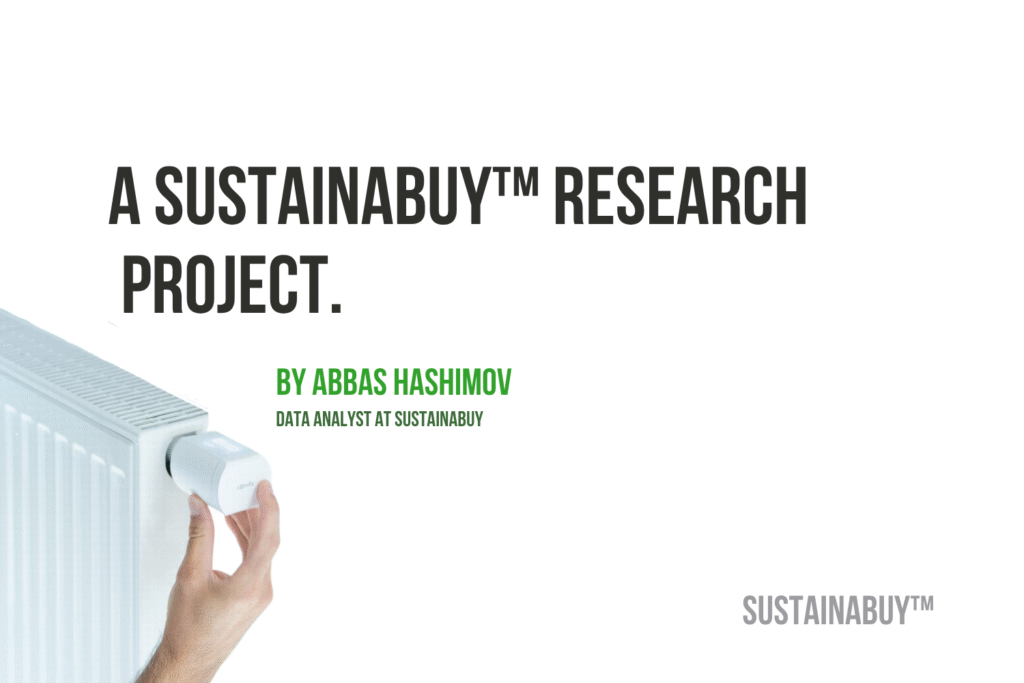
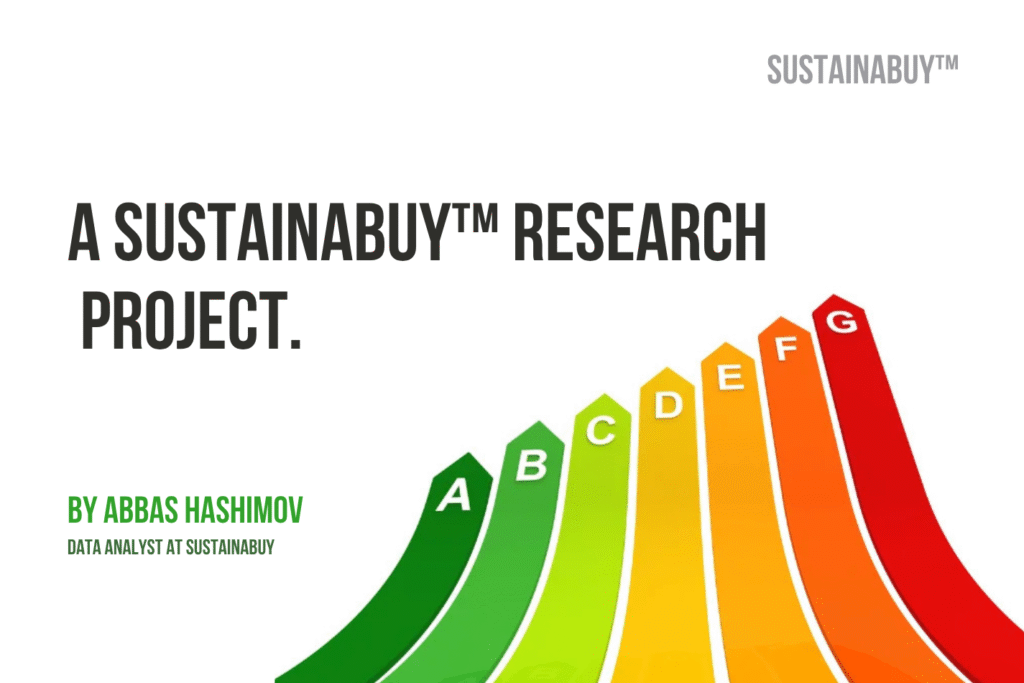
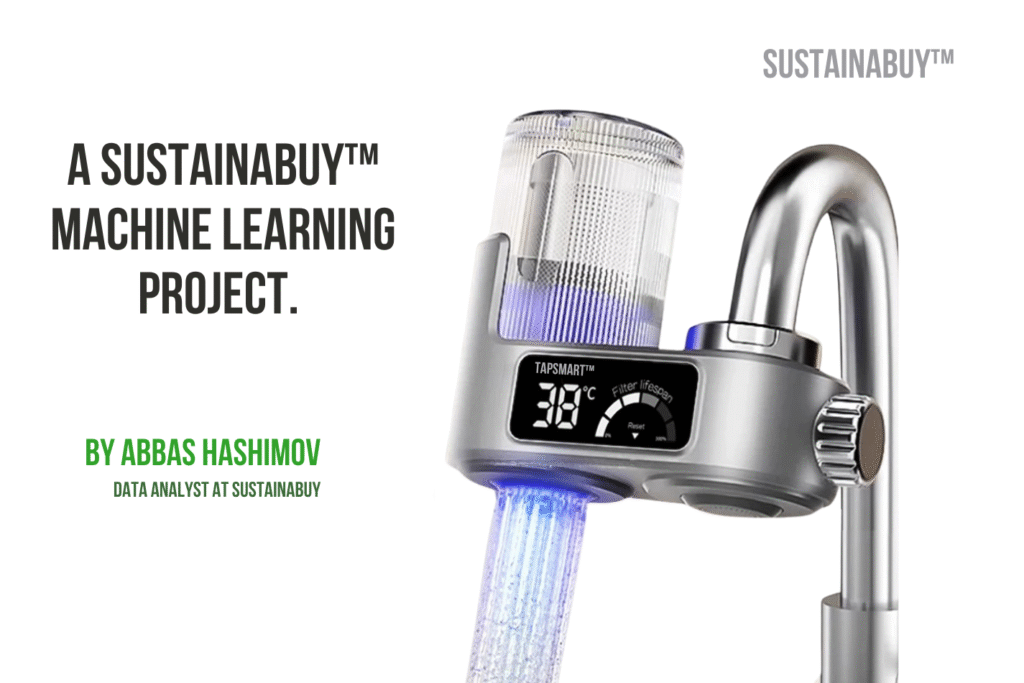
This article provides an insight to the many ways one can save energy, crucial in the age of rising cost and grid instability demonstrating the importance of energy security.